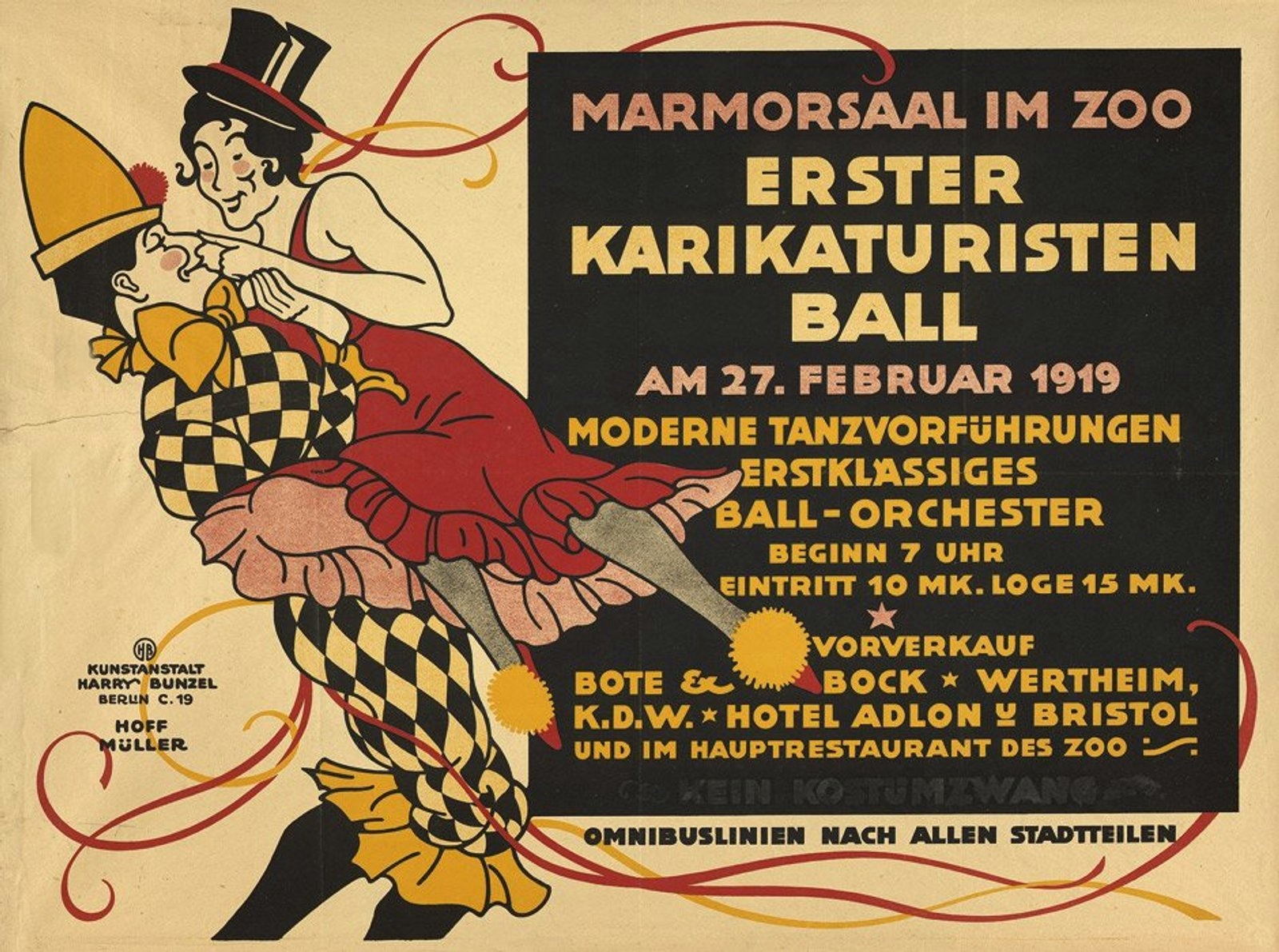
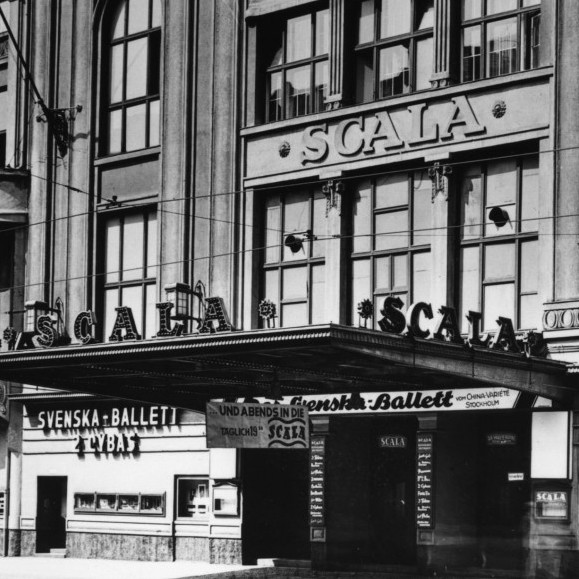
The Scala
The Scala was built in 1920 by a consortium of nine wealthy Jewish business people, including the Dutch aviation pioneer Anton Fokker. It was situated at Lutherstraße 22-24 on the corner of Augsburgerstraße , now Martin-Luther Straße 12-14 at the corner of Fuggerstraße.
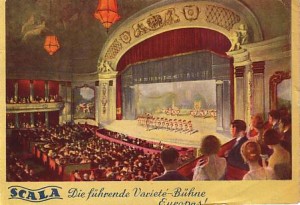
It was hugely successful and rapidly became the most famous Vaudeville stage in Germany and by 1941 the country’s largest.
It survived surprisingly well during the early years of National Socialism but it was the realities of the 2nd World War that brought an end to the militaristic ‘kick-lines’ of the Hiller Girls, as they were deemed “frivolous and tasteless entertainment” at a time of national crisis.
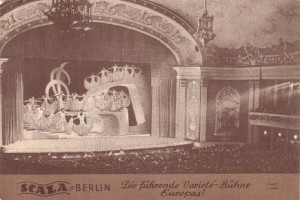
Goebbels final decree against the cabaret scene on March 14th 1941 banned any stage references to public events or personalities. This decree also banned the role of ‘Conferencier’ or MC, thereby reducing the cabaret to an unconnected string of song and dance numbers. This decree destroyed the last vestiges of the cabaret form leaving only variety acts and female dancers and models. Even they did not survive much longer, all remaining cabaret stages were closed by Goebbels at the end of August 1944.
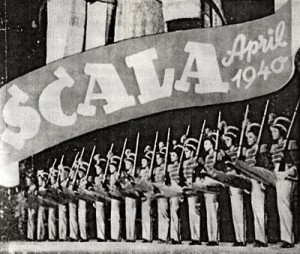
The building was mostly destroyed on the night of November 22nd 1943, but remained partly in use by The Voles cabaret troupe. It was finally demolished in the 1960s.
The site of the foyer area is now occupied by a menswear shop, apartments and an Imbiss. The stage and auditorium, a huge car park to the rear.
